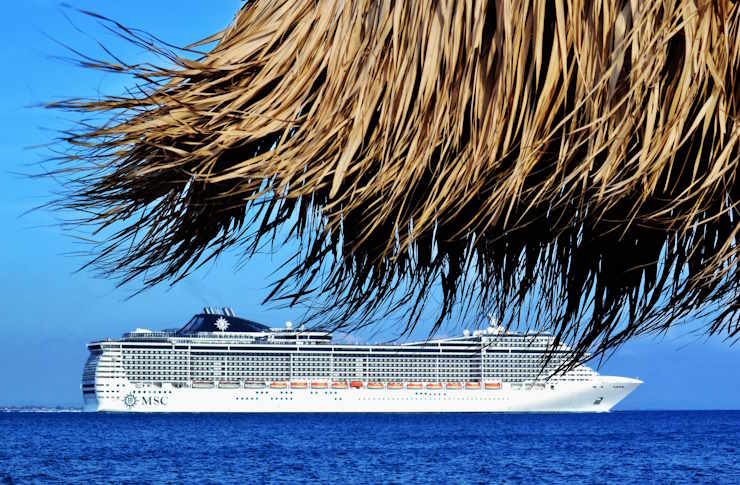Holidays for Singles Over 70 — a practical guide to safe, social and accessible trips
Traveling solo later in life is rewarding when trips are designed with safety, comfort, and companionship in mind. This guide explains how holidays for single travelers aged 70 and above work, what activity levels to expect, how to navigate accessibility, social dynamics, budgeting, booking, and cancellations, plus what to prepare before you go.

Solo travel after 70 can be enriching, provided the trip matches your pace and preferences. Many operators now design itineraries that balance cultural discovery with comfort, giving single travelers ample chances to meet peers while keeping logistics straightforward. The aim is to help you choose safe, social, and accessible trips that fit your interests, whether you prefer city culture, gentle nature outings, river cruising, or an escorted tour in your area.
About the service and who it serves
Holidays for single travelers over 70 typically cater to those who want company without needing to coordinate with friends or family. Trips often specify a minimum age, with many welcoming over 50s while still attracting a core of guests in their 70s and 80s. Group sizes vary from small groups of around 12 to medium groups of 25 to 40. Hosts or tour leaders facilitate introductions, manage logistics, and keep the group moving comfortably. Many providers offer room options tailored to solo guests, such as single rooms, solo cabins, or reduced single supplements.
Types of trips, itineraries and activity levels
Options range widely. Escorted coach tours and city breaks offer structured days with frequent rests. River and ocean cruises provide accessible ships, lifts, and smooth travel between destinations, with optional guided tours ashore. Nature and culture trips might include gentle walking on even paths, short museum visits, and scenic drives. Many operators grade activity levels from easy to moderate or more active, making it simpler to select the right fit. Look for clearly described daily schedules, walking durations, steps or slopes, and coach times. In many regions, local services can tailor private add-ons in your area, such as accessible transfers or mobility scooter rentals.
Safety, accessibility and health precautions
Safety starts with realistic planning. Review mobility needs, step counts, and lift access at hotels and ships. Request accessible rooms early and confirm features like walk-in showers, grab rails, elevator access, and step-free dining. Ask about coach steps, seat rotation policies, and availability of slower-paced groups. Carry a list of medications and allergies, pack enough supplies plus extras, and keep essentials in your carry-on. Comprehensive travel insurance that covers pre-existing conditions, medical care abroad, and trip interruption is important. For peace of mind, keep emergency contacts, travel documents, and operator details handy, and consider a phone with roaming or a local SIM for reliable communication.
Social opportunities and group dynamics
Well-run groups help solo travelers feel included from day one. Hosts often arrange welcome meetings, shared tables, and optional evening meetups. Small-group formats encourage conversation, while seat rotation on coaches mixes the group over time. Free time remains part of the plan, allowing quiet moments or personal interests. If you prefer more privacy, ask about single dining tables or rooming policies that avoid pairing strangers. For those who enjoy structured interaction, look for themed departures, enrichment talks, light activities such as walking tours graded easy, or hands-on workshops that naturally spark discussion.
Booking, costs, cancellations and preparation tips
Budgeting is easier when you know what is included. Compare base price, single supplements or solo room surcharges, and what comes with the fare such as meals, tours, tips, and transfers. Flexible rates can cost more upfront but may offer better cancellation terms. Book flights with adequate connection times and consider mobility assistance at airports if needed. Request accessible rooms early and reconfirm a week before departure. When possible, choose travel dates outside peak seasons for gentler crowds and prices.
| Product or Service | Provider | Cost Estimation |
|---|---|---|
| Escorted solo tours | Just You UK | £1,200 to £4,000 per person for 7 to 14 nights |
| Educational group trips | Road Scholar US | 1,500 to 6,000 USD per person for 6 to 14 nights |
| River cruises with solo options | Riviera Travel UK | £1,299 to £2,999 per person for 7 nights |
| Ocean cruises for over 50s | Saga Cruises UK | £800 to £2,500 per person for 7 to 14 nights |
| Small group adventure for older travelers | Overseas Adventure Travel US | 3,000 to 7,000 USD per person excluding flights |
Prices, rates, or cost estimates mentioned in this article are based on the latest available information but may change over time. Independent research is advised before making financial decisions.
Practical extras to prepare
A little preparation supports a smooth trip. Bring a lightweight day bag, weather-appropriate layers, a simple first aid kit, and comfortable walking shoes. Pack copies of key documents and store them separately from originals. If you use mobility aids, label them and check airline policies for batteries or dimensions. Share your itinerary with a trusted contact and enable location sharing on a phone if that feels helpful. For additional comfort, consider pre-booked airport lounges, porter services, and door-to-door transfers in your area, especially after long flights or cruise disembarkations.
How to match a trip to your style
Decide on the pace that suits you most days of the week, not just a single day when energy is high. If you like shorter days with longer lunches and early evenings, look for itineraries with two to three hours of gentle activity and plenty of downtime. If you enjoy learning, consider tours that include talks by local experts or museum guides. For maximum convenience, cruises and escorted tours bundle transport and many meals, while city breaks offer flexibility for independent exploration with light guidance from local services. Reading recent guest feedback can reveal how inclusive and unhurried a trip feels in practice.
Understanding cancellation policies
Policies vary, so read them closely. Standard tickets may have staged penalties that increase as departure nears. Flexible or refundable fares reduce the risk of change fees but cost more upfront. Some operators offer insurance add-ons that cover supplier default, medical issues, or interruptions. Check claim requirements and deadlines, and keep a record of receipts, emails, and medical notes if an issue arises. When booking multiple components such as flights, pre-nights, and tours, align cancellation windows so you do not lose more than you expect if plans change.
In later life, the right trip is the one that feels welcoming, manageable, and interesting day after day. By focusing on clear activity levels, accessible logistics, friendly group formats, and transparent pricing and policies, solo travelers over 70 can enjoy holidays that balance comfort, connection, and discovery worldwide.




